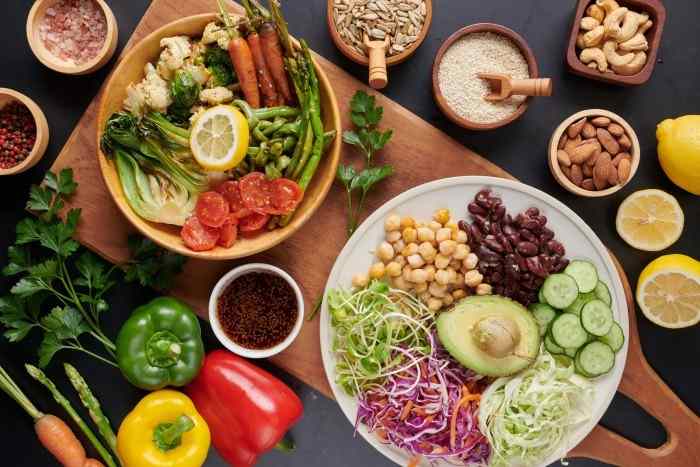Essential vs Unhealthy Fats: What Your Body Really Needs
By NutrioTalk
Introduction: Why Fat Still Matters
For years, fat was unfairly blamed for weight gain and heart problems. But today, we understand that not all fats are created equal. Some are not only good for us—they're essential. Others, however, can be harmful when eaten in excess. Knowing the difference can help you make smarter, more balanced food choices.

Basics: What Are Fats?
Fats are one of the three key macronutrients, along with carbohydrates and proteins. They play vital roles in the body, especially the essential fats like omega-3 and omega-6 which impact everything from brain function to inflammation levels.
• Provide long-lasting energy
• Help absorb vitamins A, D, E, and K
• Support hormone production
• Maintain healthy cell membranes
• Fuel brain growth and function
There are four main types of dietary fats:
1.Monounsaturated Fats (MUFA)
Found in foods like olive oil, avocados, and nuts
2.Polyunsaturated Fats (PUFA)
Includes omega-3 and omega-6 fats in flaxseeds, walnuts, and fatty fish. Learn also about power of a healthy breakfast.
3.Saturated Fats
Found in butter, ghee, cheese, and some tropical oils like coconut oil
4.Trans Fats
Artificial fats found in processed snacks and margarine, created through hydrogenation
Essential Fats: Why You Need Them
Essential fatty acids (EFAs) are fats our bodies can't make, so we must get them through food:
• Omega-3 Fatty Acids: Found in chia seeds, flaxseeds, walnuts, and algae-based supplements. These support brain function, reduce inflammation, and benefit heart health.
• Omega-6 Fatty Acids: Found in sunflower oil, soy, and corn oil. While necessary for development, too much without enough omega-3s may lead to inflammation.
Why Essential Fats Matter
• Build and repair cell membranes
• Support the nervous system and emotional balance, making essential fats crucial for mental and physical well-being
• Regulate hormones
• Help protect against chronic illnesses
Unhealthy Fats: What to Limit or Avoid
Some fats can increase your risk of health problems, especially when consumed regularly:
• Trans Fats: Trans fats, among the worst for health, are a leading contributor to inflammation and heart disease — one of the reasons they're being phased out globally.
• Too Much Saturated Fat: Not all saturated fat is harmful, but eating too much—especially from highly processed foods—may raise heart disease risk for some.
Note: Whole-food sources like coconut oil or ghee can still be part of a healthy diet when used in moderation.
Common Misconceptions
1. "All fats are bad": Not true. Essential fats are vital for your health.
2. "Low-fat diets are healthiest": These often replace fats with sugars, which can backfire.
3. "Vegetarian diets lack healthy fats": Not necessarily. Plant foods like walnuts, flaxseeds, and chia seeds are excellent sources.
Supplementing Smartly
If you're not getting enough essential fats—especially on vegetarian or vegan diets—supplements can help:
• Algal Oil: Algal oil is a clean, vegetarian source of DHA and EPA — two powerful omega-3 fatty acids crucial for brain and heart health.
• Flaxseed Oil: High in ALA, a precursor to omega-3s
• Fish Oil: For non-vegetarians, a rich source of bioavailable omega-3s
Tip: Look for cold-pressed, high-quality oils and store them in a cool place to prevent spoilage.
Emerging Trends & Research
• Omega-3 Testing: Personalized blood tests that help assess your fatty acid balance
• Designer Fats: Innovations in lab-grown or bioengineered healthy fats
• Nutrigenomics: The growing science behind how genes affect fat metabolism and individual health responses
Did You Know? Just 250–500 mg of omega-3 fatty acids per day may significantly reduce heart disease risk, especially when sourced from whole foods or high-quality supplements.
Actionable Takeaways
• Eat omega-3-rich foods daily (chia seeds, walnuts, algae oil)
• Eliminate trans fats and minimize overly processed saturated fats
• Read food labels—watch for "partially hydrogenated oils"
• Keep your omega-6 to omega-3 ratio close to 4:1 or less for best results
Final Thoughts
Fat isn’t the villain we once thought it was. In fact, it's essential for good health—as long as you choose the right types. With a few mindful choices and a better understanding of fats, you can nourish your body, support your well-being, and enjoy a satisfying, balanced diet.

